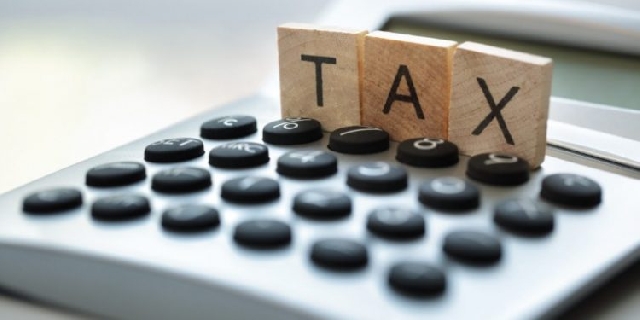Basic Tax knowledge for MSME
 Tax
Tax
Introduction
The authority to impose taxes in Ghana is anchored on the Constitution as found in article 174(1) of the 1992 Constitution which provides inter alia that no tax shall be imposed otherwise by or under the authority of an Act of Parliament.
This is why we have the following legislation:
· Income Tax Act, 2015 (Act 896), which governs direct taxation and administration.
· Customs Act, 2015 (Act 891), which governs customs taxation and administration.
· Value Added Tax Act, 2013 (Act 870), which governs VAT.
· Revenue Administration Act, 2016 (Act 915) which serves to administer all the taxes since we longer have the hitherto Internal Revenue Service, Customs, Excise and Preventive Service and Value Added Tax Service but rather a single revenue authority – The Ghana Revenue Authority.
The varying class of taxpayers in Ghana range from persons employed in the public sector, private formal sector and self-employed also referred to as the private informal sector. Within the private sector are Micro Small and Medium Scale Enterprises (MSMEs) that employ all the various legal structures for doing business to achieve their objective. They may be a sole proprietorship, company, partnership etc.
Micro Small and Medium Scale Enterprise
The National Board for Small Scale Industries (NBSSI) which is the regulatory body for MSMEs in Ghana defines MSME as an enterprise with turnover greater than US$200,000 and not more than US$5 million equivalent.
The Ghana Statistical Service (GSS) has defined MSME by using the number of employees a firm has employed at any point in time to classify a firm to be a small or medium enterprise. According to GSS, MSME is defined as any enterprise or business entity that employs between 1 to 5 as micro, a firm employing between 6 to 30 as small, a firm employing between 31-100 as medium and a firm employing more than 100 workers as large enterprise.
1. What are the main tax obligations for the MSME?
Regardless of the form or structure employed for purposes of doing business, MSMEs are subject to various kinds of tax including:
· Income Tax – personal (for sole proprietorships) or corporate
· Withholding Tax
· Value Added Tax
· National Health Insurance Levy (NHIL)
· COVID 19 Levy
· Ghana Education Trust Fund Levy (GETFund Levy)
· Property Tax
· Excise duty
· Tax Stamp
· Municipal Tax
· Communication Service
· E-Levy
For purposes of Income Tax, it is imperative that all persons, including entities who earn chargeable income or receive final withholding payments during a year of assessment pay tax on that chargeable income earned or final withholding payment received. The chargeable income refers to all the income earned during the year of assessment with the necessary allowable deductions, (if any), made. It must however be noted that each source of income shall be treated separately.
What constitutes an allowable deduction may be in the form of gains made (especially in the case of a sole proprietorship) and or expenses incurred. Other than these, the taxpayer may be entitled to some other reliefs in the form of temporary concessions.
2. How to schedule file the tax returns to avoid default
o Pursuant to section 125 of the Income Tax Act, 2015 (Act 896) a resident individual whose sole income is from employment or who does not earn chargeable income is not required to file tax returns. Similarly, a non-resident person is under no duty to file returns on income if that non-resident person earns no chargeable income.
o Whereas these categories of persons are under no duty to file returns, they may either be required to file returns upon being served with a written notice by the Commissioner-General to do so or may elect to file returns. Every taxable person is however mandated under Section 52 of Act 870 to file returns on VAT and account for same for each tax period.
o With regards to returns, a taxpayer is generally required to file returns for both direct and indirect taxes – See: Section 124 of Act 896 and Section 52 of Act 870 (as amended by Act 954)
o For purposes of VAT, the returns are to be filed not later than the last working day of the month immediately following the month to which the return relates, whether or not tax is payable for the tax period. Section 52(4) of the Value Added Tax Act, 2013 (Act 870)
o In the case of income tax, unless exempted under the law, a person is required to file a return of income for each year of assessment not later than four months after the end of the year of assessment. Notwithstanding the periods provided under the Acts for filing returns, Section 28(3) of Act 915 provides that a taxpayer may be required in writing to file a tax return on stated.
o In the case of an entity, a duly authorized manager must sign and attest to the accuracy of the returns. In addition to the above, where the taxpayer was assisted in preparing a tax return or an attachment to a tax return, it shall be signed by the consultant with various certifications. – Section 29 of Act 915
o One may however apply for an extension of time to file tax returns pursuant to section 30 of Act 915 for a total period not exceeding sixty days from the date the return was originally to be filed.
Practical ways of filing tax returns
o Income tax returns must specify:
a. The assessable income of the person for the year from each employment, business and investment
b. The source of the income
c. The chargeable income of the person for the year
d. The tax payable
e. The tax paid by way of withholding, instalment or assessment
f. The remainder of tax to be paid for the year
See: Section 124(2)(a) of Act 896
o Additionally, the taxpayer is required to attach
- Any withholding certificates in the taxpayer’s possession
- Any other information that may be needed by the Commissioner-General
See: Section 124(2)(b) of Act 896
3. Which taxes are general for all MSME and which ones are sector specific?
MSMEs are subject to various kinds of tax including:
· Income Tax – personal or corporate
· Withholding Tax
· Value Added Tax
· National Health Insurance Levy (NHIL)
· Ghana Education Trust Fund Levy (GETFund Levy)
· Property Tax
· Excise duty
· Tax Stamp
· Municipal Tax
· Communication Service Tax
4. Which tax obligations are subject to negotiations and which ones are not?
o One may apply for an extension of time to file tax returns pursuant to section 30 of Act 915 for a total period not exceeding sixty days from the date the return was originally to be filed.
o The law also allows for taxes to be paid on instalment
5. How to schedule payments/returns to comply with the law but also not compromise one’s cash flow
I. The first step to tax planning, is compliance. It is therefore important that businesses understand the tax laws or have good tax consultants so as to appreciate the tax implications of every decision that is to be taken. This helps to avoid incurring unnecessary penalties and even taxes.
II. Comply with stipulated dates
A taxpayer is required to file returns and pay taxes not later than stipulated dates depending on the nature of the tax. Failing to either file or pay your tax by the required date attracts penalties which may accrue interest. Such a failure would therefore prove expensive in such times.
III. Tax planning is the process of forecasting one's tax liability and formulating ways to reduce it. Tax planning is also said to be the art of arranging one’s affairs in ways that postpone or avoid taxes.
IV. Stated differently, tax planning means deferring or avoiding taxes by taking advantage of beneficial tax-law provisions, increasing and accelerating tax deductions and tax credits, and generally making maximum use of all applicable tax breaks and incentives, if any, available under our tax laws.
V. Claiming Contributions and donations made to a worthwhile cause (s. 100 of Act 896). Any donation made towards a worthwhile cause subject to the approval of the Commissioner-General, is generally an allowable deduction (s. 100(2)(e) of Act 896). As part of the measures by the Government, donations towards Covid-19 are allowable deductions.
VI. Additionally, the law allows for all other kinds of donations, to the extent that they are towards a worthwhile cause and approved by the Commissioner-General under s. 100(2)(e) of Act 896.
VII. Self-Audit and Tax Refunds or Set-offs
o The importance of self-audit cannot be overstated especially in these trying times. Conducting a proper tax audit may help identify mistakes and lapses before the GRA conducts its audit. This may also either avert the overpayment of taxes or help a company identify overpayments for which the company may apply for a tax refund or use same to reduce other tax liabilities, whichever is appropriate. (ss.66 – 68 of Act 915). It may also help to ascertain the appropriate input tax deductions under VAT.
o
VIII. Structure of Workforce
o The law allows for companies to enjoy some allowable deductions in respect of the structure of its workforce. Where a company has fresh graduates as part of its workforce, depending on the percentage of the fresh graduates within the workforce, the company may have a deduction of between 10%-50% of the salaries and wages paid them. (Paragraph 8 of the Sixth Schedule to Act 896)
o While this may not be the appropriate time to recruit, a company can audit its workforce for this purpose. A fresh graduate within this context is a person who has graduated from a tertiary institution for the first time, whether or not that person has been previously employed.
IX. Claiming Expenses
o Every expenditure made by a company to the extent that the expenditure is wholly, exclusively and necessarily incurred in the production or generation of income is an allowable deduction to a business which must be claimed. (s. 9 of Act 896)
o Specifically, some of the expenses that companies can claim allowable deductions either wholly or in part for, include
a. interest on debt obligations
b. cost of sales
c. bad debts
d. repairs and improvements
e. research and development
f. Capital allowance
g. financial costs, among others.
o Companies must therefore ensure all expenses are properly captured and receipted which would go a long way to be of benefit them.
X. Change in Accounting Year
In order to be liquid, a company may with the approval of the Commissioner-General, change its accounting year on the terms and conditions that the Commissioner-General may approve (s. 18(3) of Act 896). This generally alters the time at which the company would be required to pay tax (s.18(5) of Act 896).
This can however be done only once in the life of the company.
XI. Thin Capitalisation
Ordinarily, where a company procures a loan facility for purposes of generating income, the interests paid on the loan, are allowable deductions. (s. 10 of Act 896). Shareholders may want to take advantage of this provision and run the company with debt only. Hence the cap to allowing interests from loans to be deductible is pegged at a debt-to-equity ration of 3:1 (s.33(1) of Act 896).
In spite of this, during a profit downturn, to the extent that the debt to equity ratio does not exceed what has been provided, a company may want to consider injecting funds by way of loans into the business in order to be liquid.
XII. Repairs and Improvements
Allowed as a deductible expense when it meets the residual deduction rule but the deduction is limited to 5% of the written down value in a particular pool of depreciable assets at the end of the year (section 12 of Act 896).
An excess expense for which a deduction is not allowed as a result of the limitation shall be added to the depreciation basis of the pool to which it relates. With the right assistance, companies should be able to benefit from such deductions.
XIII. Research and development expenses, etc
It is worth mentioning that, in taking steps to reduce once tax liabilities, the Commissioner-General may re-characterise or disregard an arrangement which is fictitious or does not have a substantial economic effect or where its form does not reflect the substance. (s. 34(1) of Act 896)
6. What tax reliefs exist for MSMEs?
The income of an entrepreneur not more than 35 years of age, from the business of
· manufacturing,
· ICT,
· agro processing,
· energy production,
· waste processing,
· tourism and creative arts,
· horticulture and medical plants, are exempt from tax for a period of five years.
After the initial concession period, the person is liable to
· 15% corporate tax rate if the business is located in Accra or Tema;
· 12.5% if it is located in other regional capitals other than what used to be the three Northern Regions;
· 10% if it is outside the other regional capitals; and
· 5% if the business is located in what used to be the three Northern Regions.
The person may carry forward unrelieved losses for a period of five basis periods.
Corporate Tax Rates
o Generally, companies are taxed at a rate of 25%.
o In the case of one principally engaged in the hotel industry, the rate for tax purpose is 22%.
o A company that deals in the export of non-traditional goods is taxed at a rate of 8%.
o Where a financial institutions derives income from a loan granted to a farming enterprise, the institution is taxed at 20% .
o Where the entity is a company, it is taxed separately from its shareholders. In other words, both the entity and its directors are taxed separately.
o Where the entity is a partnership, the entity does not pay income tax, however the partners are taxed as individuals in respect of their share in the partnership.
Source: Chamber of Agribusiness
Trending Features

Reconceptualising Ghana’s learning crisis: Lessons from our own classrooms
11:06
Mahama handed youth the baton, they must now run
08:38
Omar Sterling: 7 reasons VTH2 is the greatest representation of a true rap album
17:16
Ghana Goldbod: Immediate challenges and the way forward
06:37
President of Ghana’s bold speech at the 80th UN General Assembly
18:22



